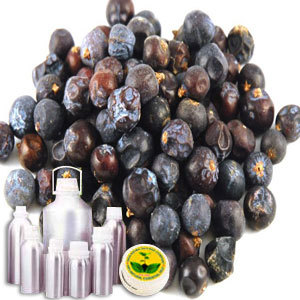Botonical Name | : | Juniperus communis | |
CAS # | : | 8002-68-4 | |
Country of Origin | : | India | |
Color & Odor | : | Colorless clear liquid with Characteristic juniper berry odor | |
Solubility | : | Insoluble in alcohol and oils. Soluble in water | |
Specific Gravity | : | 0.840 -0.879 @ 20°C | |
Optical Rotation | : | +5° to +22° | |
Refractive Index | : | 1.460 -1.484 @ 20°C | |
Flash Point | : | 60°C | |
Ph value | : | 3.00 - 6.00 @ 20°C | |
Essential Oil Content | : | >0.025 % | |
Plant Part Used | : | Berries | |
Extraction Method | : | Hydro Distillation |
DESCRIPTION:
Juniper berry extract is well recognized for their strong flavour that makes it used in aromatherapy and perfumery industry. The essential oil distilled out of berries can also be used to flavor gin.CONSTITUENTS:
The primary chemical constituents include essential oil (cineole, camphene, myrcene, terpinene, pinene), sesquiterpenes (elemene, cadinene), flavonoids, tannins, podophyllotoxin, glycosides and vitamin C.AROMATIC SUMMARY / NOTE / STRENGTH OF AROMA:
A sweet floral aroma similar spicy to the scent of seed and herbal citrus freshly.BLENDS WITH:
Lavender, lavandin, pine, clary sage, cypress, vetiver, sandalwood, rosemary, fir needle, basil, fennel.COMMON NAMES:
Common Juniper.USES:
Juniper berries are used to provide flavour to meat dishes, in treating infections, especially within urinary tract, bladder, kidneys & prostate. Its antiseptic properties also help in removing waste & acidic toxins from body, thus stimulating fighting action against bacterial & yeast infections.


































